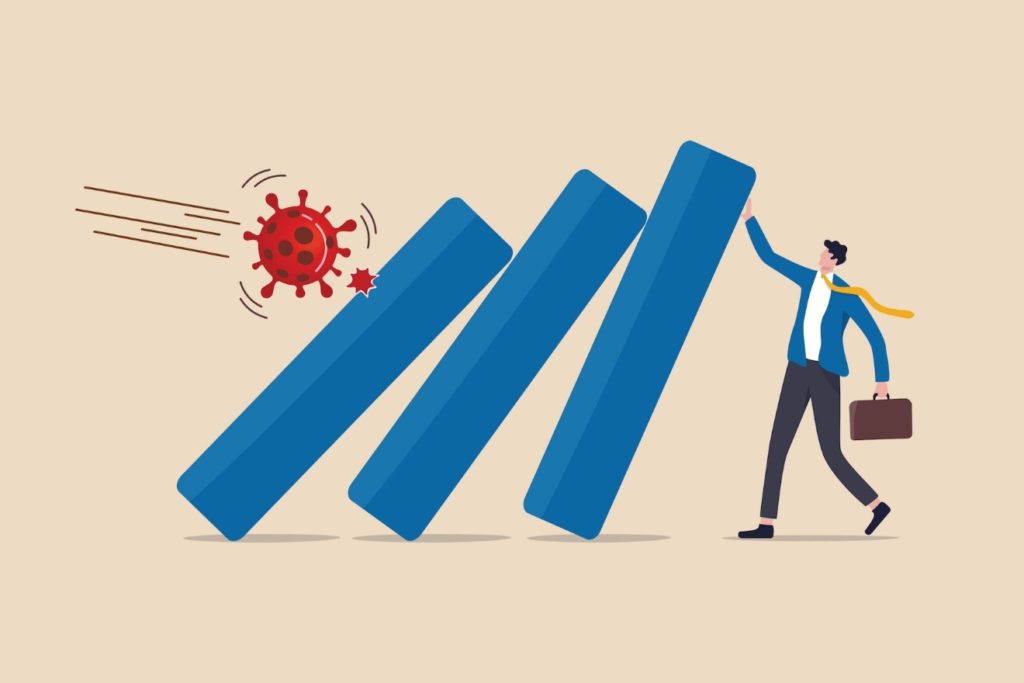
“The COVID-19 epidemic has been hard for businesses, with the majority of them forced to slow operations or quit completely in response to the global health emergency.”
During the Covid-19 outbreak, many small business owners worked around the clock to rebuild their businesses. They’ve made great efforts and spent a lot of money to keep their businesses running while dealing with personal and professional difficulties. Businesses must adapt to new safety standards in order to reduce risk for clients and staff while also managing uncertainty. So, where should you start? We’ve created an eight-step framework to help business financial recovery and think about the actions required and the keys to success.
8 Steps Towards Small Business Financial Recovery After the pandemic
-
Analyze the Damage
Initially, business owners must speak with a financial specialist and review previous financial reports. Start comparing financial statements from the last five years. Moreover, the other damages your business faced due to the pandemic.
-
Analyze the Influence On Operations
What will happen to your company amid the current crisis? Analyse best-case and worst-case situations and establish emergency plans for each case. Add timelines in your analysis that consider the effects of the pandemic if it becomes a four-month, eight-month, or one-year concern.
For example, how would your company handle changes if top individuals become ill or have to attend for family members? Determine those who can step in and perform critical tasks, such as family members, contract workers, and freelancers.
-
Create a remote work option
With so many people already working from home, there are several free solutions that business owners can use to keep the team in touch and functioning even if they aren’t in the same location.
Develop a remote work strategy that defines when you want your team to be online or available, how you want them to communicate (for example, by email, chat, or video conference), and what tasks every group member is responsible for doing.
-
Reach out
Customers may feel empathy with brands in crises if they are effectively communicated.
Create a communication strategy for reaching out to your customers, partners, providers, shareholders, and other influencers. Keep them up to date on your current business policies, any modifications to operations, and new ways to collaborate with them.
-
Prioritize your health and safety
Prioritize your health especially if you are the only proprietor. Any gatherings or other scheduled business travel must not happen. Also, try to minimize your business meetings and utilize the home office. If that is not possible and your business is considered essential, take steps to reduce the risk of virus transmission at your workplace. This includes social isolation, shift split, and regular sanitization.
-
Rebuild Your Business Plan
Your company model may have performed very well before COVID-19, but coming out of it may require some good-tuning. You might have to think about how your business can pivot to adapt to a new routine.
Understanding how the coronavirus outbreak has influenced your entire industry is also beneficial. When analysing your competition and the industry as a whole, pay attention to changes and focus on identifying opportunities. Finding a gap or demand that your company can fill could be important to regaining and increasing your customer base in the future.
-
Determine the (financial) damage
The most critical step in recovering after COVID-19 is determining how badly your small business is sufferring. Start by refreshing your income statements and comparing them to the previous year. Maybe the damage isn’t as severe as you think. In addition to the basic numbers, such as sales, profitability, and cash flow, evaluate how your business has been impacted in other ways. Employee headcount or losses in market share are a good example. You’ll need to consider these elements in your rebuilding strategy.
-
Consider funding you’ll need to recover
Unless you had tons of cash going in the epidemic, many small businesses are finding that they need some flexible capital to get out of it.
Managing your company’s cash flow is important to its future. When things are tough, finance and cash flow become a major concern; if left unchecked, they can lead to trouble. To manage your cash flow, look for financial options that allow you to get paid more quickly.
You need to talk to financial institutions to get more personalized help. A team of business funding professionals can understand how COVID-19 is affecting your particular company so they can propose the best funding solutions to help you recover, grow, and eventually achieve your business goals.
CONCLUSION
The outbreak has educated us on the value of business agility, flexibility, and awareness. The better prepared you are, the more likely you are to succeed in an uncertain and ever-changing environment.
Nobody knows what will happen next or if a pandemic like this will occur again in our lives. However, it is beneficial to have a plan in place to lead your company through situations such as COVID-19 and to ensure that it is in a good position to recover after it has gone.
As a small business owner, it’s critical to look beyond the current instability and consider lessons learned. Now is the time to concentrate on the essentials of running a successful business.
At Hasanov Capital, we can help bolster your business financial recovery and growth with different business loan options. We are specialized finance and alternative funding platform that is privately owned and operated. We focus on providing capital access to small and mid-sized enterprises in the United States who have typically been neglected by traditional financial institutions. And the ones who may have had trouble receiving timely funding. Get in touch with us today for your business financial recovery!



